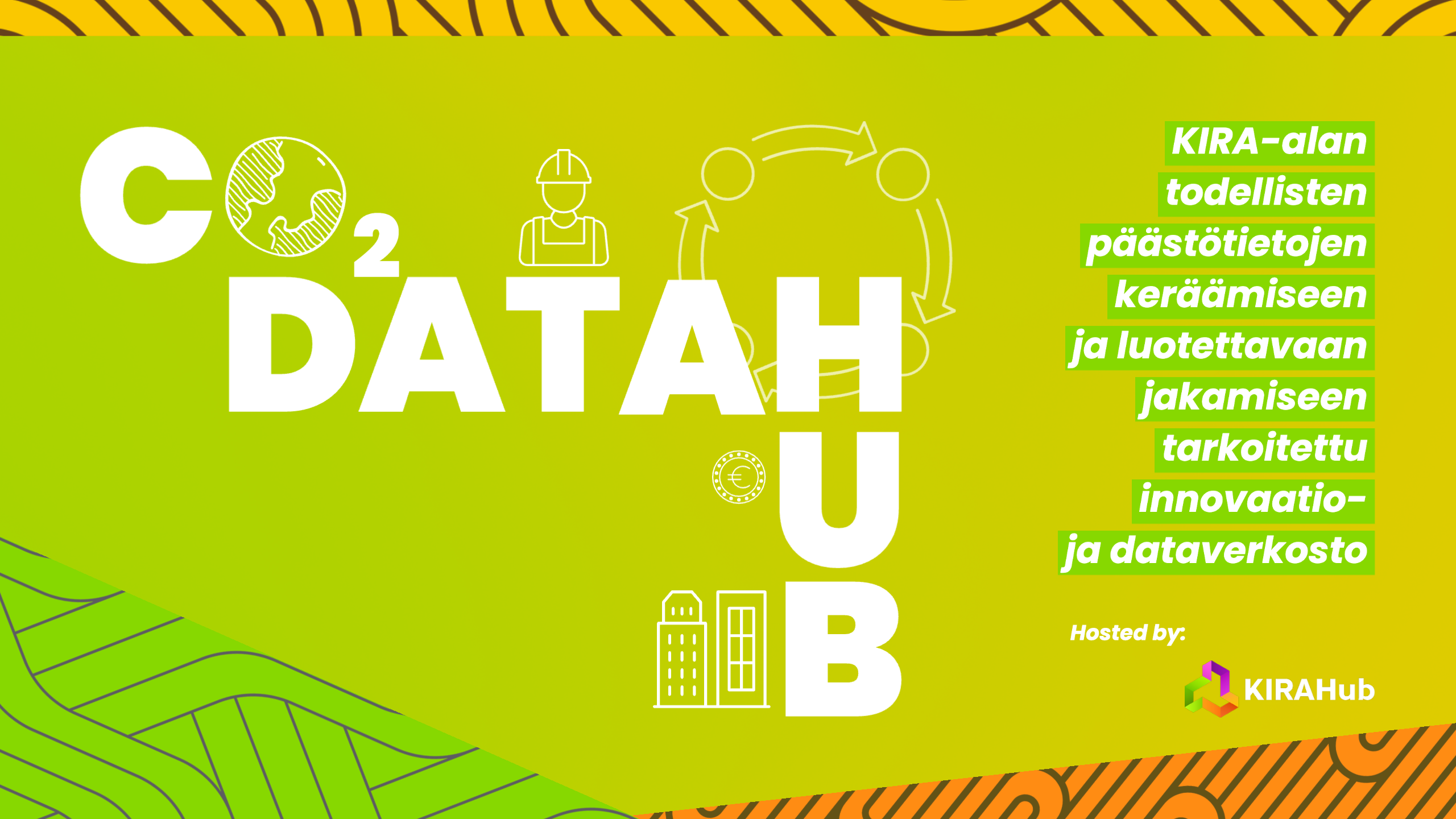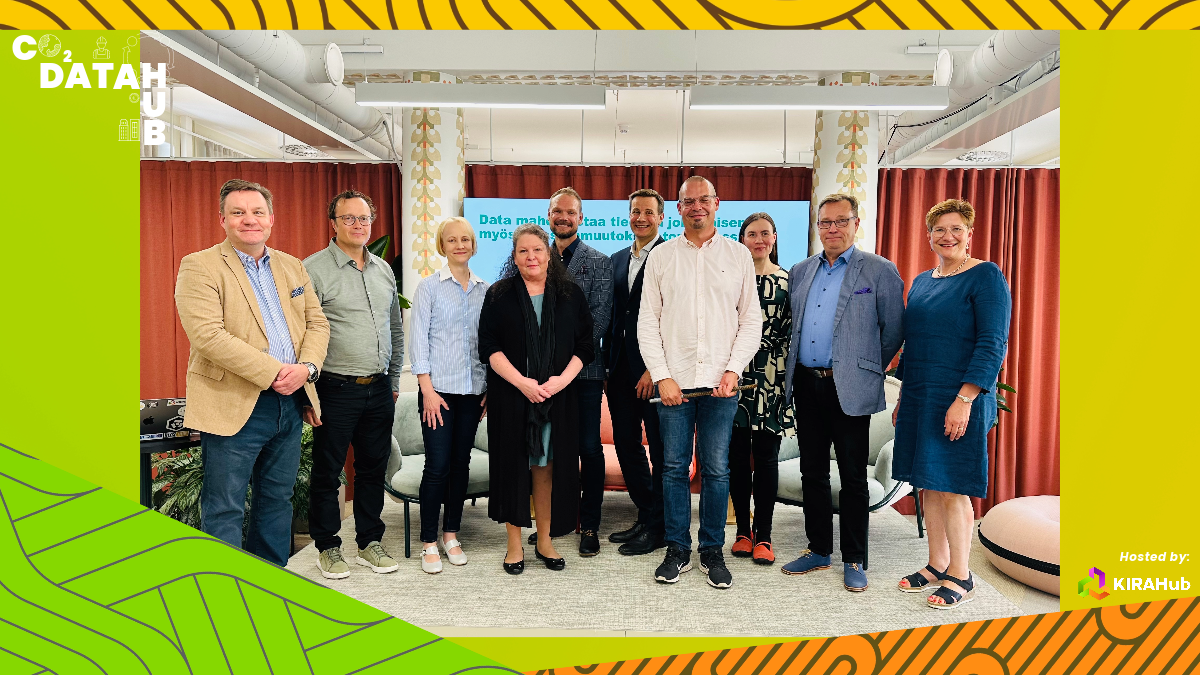CO2 DataHub Ecosystem
The CO2 DataHub ecosystem is an innovation and data network designed to meet the needs of real estate and construction organizations, gathering real emissions data for reliable sharing.
The network aims to:
- Help understand the overall emissions situation in the built environment.
- Lead to the implementation of solutions that reduce carbon footprint based on data.
- Provide economically significant sustainability benefits to participating organizations.
The core mission of the network is to create capabilities and act as a leader in CO2 data-driven management and the formation of industry-wide practices. These include thought leadership, sharing best practices, collaborative innovations, and data-driven concrete solutions.
The operation and decision-making of the ecosystem are carried out as part of steering group activities, organized by KIRAHub. Participation in the steering group requires collaboration membership with KIRAHub.

In 2024, CO2 DataHub is a pioneering organization formed by leading organizations, creating an attractive and exemplary collaborative ecosystem that both attracts new industry organizations and leads the entire KIRA sector to reduce its carbon footprint and improve overall sustainability.
Steering group 8.9.2022


Chair of the
Steering Group:
Anne Kaiser
anne.kaiser@saint-gobain.com

Vice-Chair of the Steering Group:
Tomi Aimonen
tomi.aimonen@ilmarinen.fi
The roadmap for data-driven carbon management
The downloadable document here depicts the roadmap for Data-Driven Carbon Management of the CO2 DataHub ecosystem, aimed at supporting emissions reduction within ecosystem organizations through data-driven management. National and international emission reduction targets impose requirements for emission calculation and reporting, and regulations are expected to tighten. In addition to regulations, companies and cities want to monitor their emissions to provide information to their customers and residents, and to guide their environmental actions based on calculated data, as efficiently as possible.
The roadmap for data-driven carbon management defines measures to support data management, which ecosystem actors are recommended to implement over the next few years. Key measures involve further development of ecosystem operating frameworks, concrete data platform-based data pilots, and data services. The refinement and monitoring of roadmap measures are key tasks of the ecosystem steering group.
The roadmap is produced as part of the RRF-funded KIRA Climate Program, led by Vastuu Group, which has investigated and developed methods for measuring, assessing, and managing carbon dioxide emissions in the value chains of companies and cities. The writing team includes several organizations. From VTT, the authors were Rita Lavikka, Tiina Vainio-Kaila, and Markku Kiviniemi. From Sitowise, contributors included Elina Nieminen, Elina Virolainen, Iida-Elina Kiminki, and Suvi Monni. From Vastuu Group, the authors were Kim Sundberg and Roope Pajasmaa. Aalto University contributors were Linda Mattila and Ilkka Lakaniemi. Joni Riihikoski was responsible for the report’s layout.

